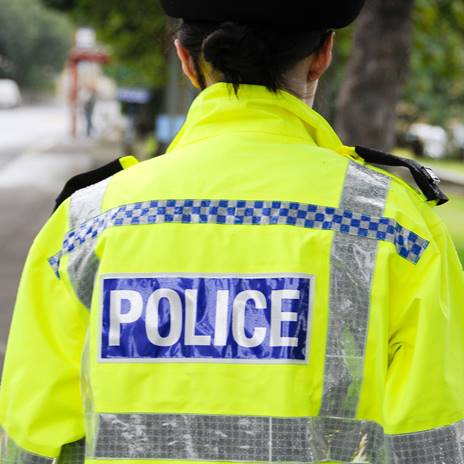
Candidates for West Yorkshire Mayor announced
The Candidates in the race to become the Mayor of West Yorkshire have been announced, as the deadline approaches for residents to register to vote in next month’s mayoral election.
Mayor writes to Transport Secretary over plans to close vast majority of rail station ticket offices.
07 July 2023
Mayor of West Yorkshire Tracy Brabin has written to the Transport Secretary demanding an immediate halt to a consultation into plans for “radical cutbacks” to rail station ticket offices.
The Mayor and West Yorkshire Combined Authority Transport Committee chair Cllr Susan Hinchcliffe have written to Mark Harper after train companies revealed plans to close the vast majority of ticket offices across the North – including West Yorkshire.
Almost 85 per cent of the region’s ticket offices would close under the proposals, with only three of the 69 stations in West Yorkshire retaining ticket offices.
The joint letter raises serious concerns about the “fundamentally flawed” consultation – set to last just 21 days.
“The proposals are so extreme in their proposed scale and impact that they are plainly led purely by the desire to cut costs,” the letter adds.
Of particular concern is the apparent lack of an assessment into social and equalities impacts, rendering the legality of the proposals “questionable”.
The Mayor and Cllr Hinchcliffe raised concerns about the “grave impacts” closures could have on women; the young; the elderly; Black, Asian and minoritised communities; the LGBT community; and other minority groups who are disproportionately likely to face personal safety issues.
Members of the Transport Committee also voiced strong opposition to the plans at a meeting on Friday morning.
Read the full letter:
Dear Mark,
Rail Station Ticket Offices and Staffing
We write as Mayor of West Yorkshire and as Chair of the West Yorkshire Combined Authority’s Transport Committee (and Leader of Bradford Council) to express our grave concerns at the consultation that has been launched into proposed radical cutbacks in the provision of station ticket offices and staffing across the North, and especially within West Yorkshire.
We consider the position to be so serious that the consultation is fundamentally flawed and must be suspended immediately.
These concerns relate as much to the substance of what is proposed as to the consultation itself.
We would emphasise that we fully recognise that the ways in which travellers use the railway have changed in recent years, and will continue to do so, with traditional over-the-counter purchases of tickets having declined.
Along with our colleagues in Transport for the North (TfN) and beyond, we see this as a real opportunity to improve
the passenger experience, as well as making the railway more efficient, by optimising ways in which staff presence is provided at our stations.
Developing a concept to do this, however, means progressing with the work that is already underway on key themes like Stations As A Place (focusing on what the function of stations should be within their varying communities, and how they should best fulfil that), as well as, crucially, on ticketing and fares reform, including the roll-out of the long-promised Pay As You Go
ticketing in the North as well as considering new ways in which travel can be retailed.
With regard to the proposals themselves, we must emphasise that the amount of detail given is grossly inadequate and therefore we cannot comment comprehensively.
However, the information provided demonstrates that the planned changes are wholly unacceptable and must not proceed.
1. The proposals are so extreme in their proposed scale and impact that they are plainly led purely by the desire to cut costs. With almost 85% of West Yorkshire’s ticket offices closing, only 3 of the 69 stations in West Yorkshire would retain ticket offices (even LNER’s Wakefield Westgate, with a footfall of around 2 million per year, would lose its office), plus radically reduced opening hours at the three remaining ticket offices and the remainder of stations losing staff coverage of any type for much of the day.
2. This is underlined yet further by the proposals second-guessing and undermining the work referred to above regarding the future role of stations and how they should be staffed and their wider services provided, as well as questions of fares, ticketing and retail reform. It is unacceptable to prepare these proposals in isolation from those vital themes.
3. There is no evidence of proper and adequate consideration of the social and equalities impacts of all the proposals. This in itself constitutes a fundamental flaw, and indeed a failure to carry out and publish a complete Equalities Impact Assessment ahead of the consultation renders the legality of the proposals questionable.
It seems clear that the impacts of the proposals as they stand – and as proposed to be imposed in isolation from any wider strategy to consider how station services are provided – would have grave impacts on those with protected characteristics and other groups within our communities who are already disadvantaged, including:
(a) The disabled – who are disproportionately reliant on ticket offices;
(b) Women; the young; the elderly; Black, Asian and minoritised communities;
the LGBT community; and other minority groups who are disproportionately likely to face personal safety issues.
(c) The economically disadvantaged and socially included, such as those without bank accounts, without full or any access to the internet, and/or without smartphones.
As a result, the proposals potentially constitute the greatest retrograde step in modern times as regards the accessibility and social inclusiveness of our transport network, running counter to our national and West Yorkshire commitments to reduce crime and focus on the safety of women and girls.
4. A greater impact on on-board staff having to issue a myriad of tickets unavailable on platforms.
Beyond this, there appears to be no indication as to what would happen to the highly skilled and experienced staff currently on stations, who are badly needed on the railway – though we have heard the suggestion that redundancy notices have already been issued in some cases.
And finally, the consultation itself is also fundamentally flawed and cannot continue in this form:
1. A three-week consultation (noting that critical information is still arriving today, 7 July, from operators), timed at the height of the summer holiday season, is wholly inadequate.
2. The information provided is grossly inadequate across almost every area, including details of what future arrangements are proposed (hours / days, staffing numbers), what physical works are intended to enable the proposed changes, what transitional arrangements would be put in place, supporting data in terms of station usage and ticket sales, proposals for products currently only available from staffed stations.
It should be noted that rail journeys are by definition two-ended, and many journeys are to or from locations outside West Yorkshire – we therefore need to know how the situation at the “other end” stations will be reflected in key cross-boundary journeys.
3. As described above, the effective absence of Equalities Impact Assessments.
4. In pressing these proposals forward, Government appears to have ridden roughshod over the existing work and the role of TfN, and the wider spirit of devolution: a more top-down approach could not be imagined.
We therefore strongly believe that the proposals and the consultation itself are both so fundamentally flawed that the only option is to suspend the consultation, pending agreeing a fit-for-purpose alternative.
This process needs to involve all partners (and wider stakeholders such as user groups) throughout, with Combined Authorities taking a key role in their areas, and in the case of the North be a process run jointly with (or led by) TfN.
We believe it would be sensible for this process to take 6-12 months, with no decisions made on specific stations' staffing arrangements until it has concluded.
I look forward to hearing that you will intervene to remedy this grave error.
Yours sincerely,
Tracy Brabin
Mayor of West Yorkshire
Cllr Susan Hinchcliffe
Chair, West Yorkshire Transport Committee & Leader, Bradford Council

The Candidates in the race to become the Mayor of West Yorkshire have been announced, as the deadline approaches for residents to register to vote in next month’s mayoral election.

This was a shocking incident and my thoughts and sympathies are with Kulsuma Akter’s family and loved ones.

I welcome today’s verdict and that Khan has finally been brought to justice for the terrible events in Bradford on 18 November 2005.